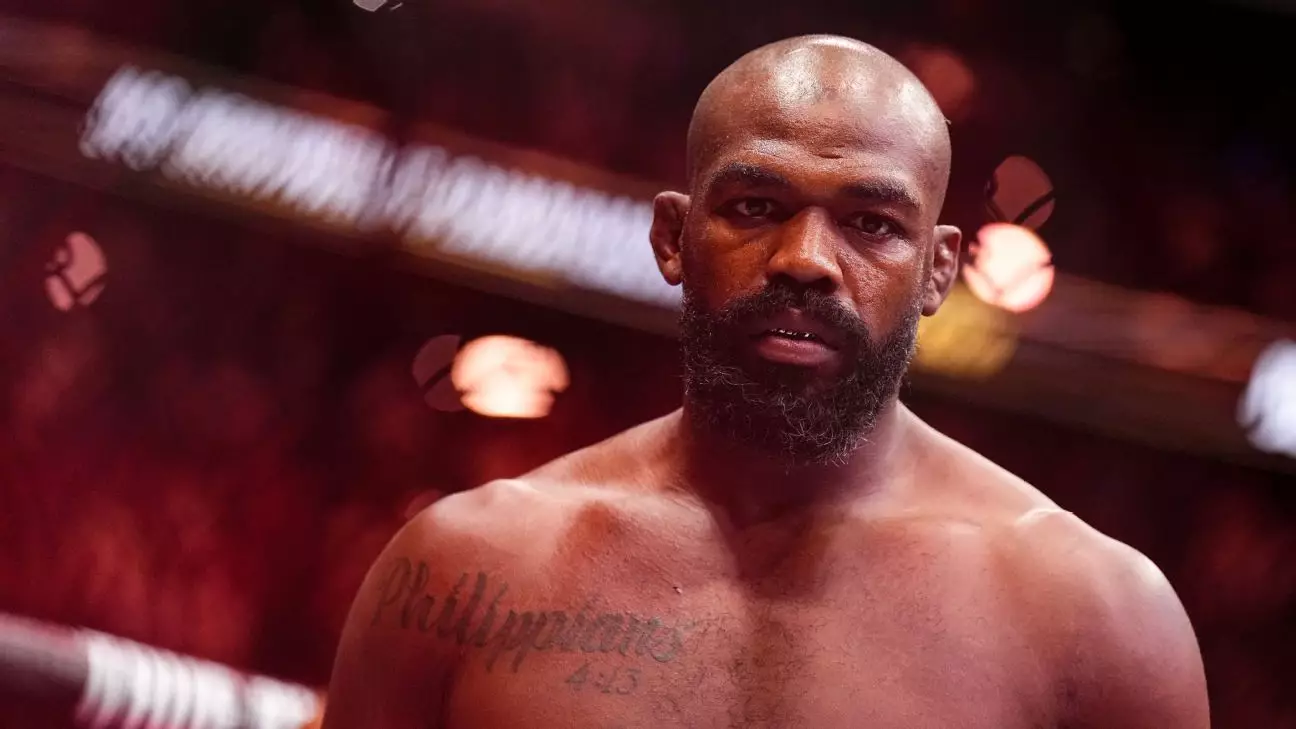The mixed martial arts community is still reeling from the unexpected retirement announcement of Jon Jones, touted by many as the greatest of all time. UFC CEO Dana White’s post-fight comments in Baku, Azerbaijan, painted a picture of disappointment rather than celebration. The implications of Jones’ retirement go beyond his own fleeting desires; they alter the landscape of the heavyweight division and leave fans grasping for closure. Are we witnessing the end of an era or merely the latest chapter in a saga filled with questionable choices by a fighter who has always danced to his own rhythm?
Jones has crafted a legacy defined equally by his incredible talent and his self-centered decision-making. While it can certainly be argued that the ability to prioritize oneself is crucial in competitive sports, Jones takes this to an entirely different level. Each decision he makes seems to echo the mantra: “It’s about my legacy, my career, and my narrative.” Consequently, the highly anticipated title unification fight against interim champion Tom Aspinall, a match that had built considerable momentum, was abruptly sidelined when Jones chose to retire instead. The fight was ostensibly on the verge of being finalized, but the roadblocks thrown up by Jones’ capriciousness suggest his interests lie elsewhere.
A Complex Relationship with Selfishness
What stands out in Jones’ career is the duality of his selfishness. While one can argue that it has served him by allowing him to manipulate circumstances to his advantage, it has simultaneously alienated fans and fellow fighters alike. For example, his harsh dismissal of Aspinall as an “unproven” opponent seems not only condescending but also reflective of a fighter more interested in preserving a legacy than nurturing rivalries that elevate the sport. This attitude has been apparent even when Jones opted to face 42-year-old Stipe Miocic instead. One has to question: how often has Jones placed his ego above the interests of the sport, his fans, and even potential future rivals?
Interestingly, White previously asserted his confidence in a title match between Jones and Aspinall, calling it a done deal. The sudden shift, compounded by Jones’ lack of communication, showcases a troubling trend that has persisted over the years. Jones’ ability to manipulate the narrative has led to broken promises and dashed hopes, and his fans—those who have supported him through tumultuous times—are often left hanging.
Historical Context of Jones’ Choices
Jones’ career history provides a vivid backdrop against which his most recent actions must be viewed. The 2012 cancellation of UFC 151 over his refusal to fight Chael Sonnen on short notice exposed a layer of Jones that many might describe as egotistical. In an industry where adaptability is essential, his choice to let an entire event succumb to cancellation described him as “selfish” and “disgusting” in the words of UFC’s Dana White. Here lies the paradox: does that same selfishness that drew scorn from fans and promoters alike simultaneously serve as his shield against risk?
His decision to bypass a fight with Aspinall echoes another instance during his years at Jackson Wink MMA Academy, where he controversially leapfrogged past friend-turned-rival Rashad Evans for a title shot against Mauricio ‘Shogun’ Rua. This not only strained personal relationships within the gym but also opened Jones to accusations of betrayal. Some may argue that such decisions highlight an astute business sense; prioritizing immediate opportunities can set the stage for long-term legacy. However, by frequently choosing to act in self-interest, Jones risks creating a legacy shadowed by underwhelming rivalries and fleeting connections.
Gaslighting a Tempting Future
The world of mixed martial arts thrives on its dramatic narratives, rivalries, and showdowns. When viewed through this lens, the clouds gathering around Jones’ retirement ironically provide him with leverage in future negotiations. History suggests that retirement is often a smokescreen until an athlete can negotiate on their own terms. His previous threats to retire have often flickered like flames, demanding attention and offering him bargaining power. In this case, Jones sure understands that his storied past in the UFC affords him many avenues to monetize his talents in a sport that thrives on anticipation and spectacle.
There lies the crux of the Jon Jones saga: the athlete remains sharply aware of his worth, and whether willing or not, he assumes control over his career narrative. Fighting on short notice and brushing shoulders with challengers like Aspinall or potential title bouts against behemoths like Francis Ngannou are conversations driven by dollars rather than loyalty. In Jones’ world, it is explicitly about claiming agency—an instinct that has molded and marred his legacy in equal measure.
Ultimately, Jon Jones has left an indelible mark on the sport of MMA, one replete with triumph and vigilance but also with a deep undercurrent of personal audacity. As he exits the octagon, fans may find themselves caught in a tug-of-war between admiration for his unparalleled skills and frustration over moments when he chose the singular path of self-interest over community and camaraderie.

